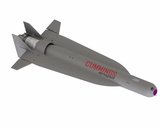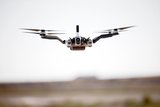What’s next for the Pentagon after the Replicator programme?
Although the Replicator initiative has made several accomplishments, there are still multiple gaps to plug across the US Department of Defense (DoD) and its services.
Facebook is ending a programme launched in 2014 to build a fleet of UAS that could deliver internet to underserved areas of the world.
The huge social network said it has not abandoned the idea of using high-altitude aircraft to connect remote areas of the globe, but would concentrate its efforts with manufacturing partners.
Facebook will close its facility in Bridgwater, southwest England, which has been working on the solar-powered Aquila UAS, according to a statement on 26 June.
Yael Maguire, engineering director at Facebook, said: ‘When we started the Aquila programme back in 2014, very few companies were involved in this area.’
But in the past four years a number of aerospace companies have been investing in the technology, he noted.
Maguire added: ‘Given these developments, we've decided not to design or build our own aircraft any longer, and to close our facility in Bridgwater.’
Maguire said Facebook would work with partners including the European consortium Airbus on high altitude platform station connectivity ‘and on the other technologies needed to make this system work, like flight control computers and high-density batteries.’
Facebook had touted the Aquila programme as one of several aimed at bringing the internet to remote areas and in 2017 announced a successful second test flight.
Google, meanwhile, has its own Project Loon which aims to deliver connectivity to remote areas using high-altitude balloons.

Although the Replicator initiative has made several accomplishments, there are still multiple gaps to plug across the US Department of Defense (DoD) and its services.

Cummings Aerospace presented its turbojet-powered Hellhound loitering munition at SOF Week 2025, offering a man-portable solution aligned with the US Army’s LASSO requirements.

PDW has revealed its Attritable Multirotor First Person View drone at SOF Week 2025, offering special operations forces a low-cost, rapidly deployable platform for strike and ISR missions, inspired by battlefield lessons from Ukraine.

Teledyne FLIR is highlighting the emerging requirements for 'recoverable and re-usable' loitering munitions across the contemporary operating environment during this week’s SOF Week conference in Tampa, Florida.

High-performance maritime industry player Kraken Technology Group, based in the UK, has used the SOF Week conference in Tampa, Florida this week to debut its K3 Scout uncrewed surface vessel (USV) to the North American market.

Red Cat and Palladyne AI recently conducted a cross-platform collaborative flight involving three diverse heterogeneous drones.